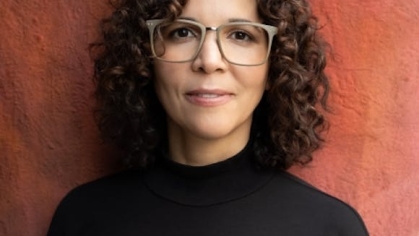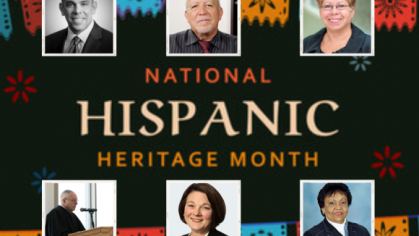A new study from researchers at Rutgers University–Newark, Yale University, and Massachusetts Institute of Technology titled "A Field Experiment on Community Policing and Police Legitimacy," shows that positive, non-enforcement contact between uniformed police officers and community members can improve public perceptions of police.
The study, conducted in cooperation with the New Haven Police Department, combined a randomized field experiment with longitudinal survey measurements and found that a single positive, non-enforcement contact with a uniformed patrol officer can substantially improve an individuals’ perception of police legitimacy and their willingness to cooperate with police to solve neighborhood problems. The effects of this police interaction—an example of what is commonly referred to as “community policing”—were largest among Black residents and those whose initial attitudes toward police were the most negative. The positive effects of the community policing encounter persisted for up to 21 days after residents’ interaction with police.
A sample size of approximately 1,000 household members in the “treatment” group in New Haven, Connecticut, first completed a baseline survey that included questions about their perceptions of police. Later, uniformed officers made a single community policing visit to individuals in the treatment group and engaged in brief, non-enforcement conversation with residents and provided their work cell phone number via a personalized business card. Following the community policing visit, residents then completed a follow-up survey both three days and 21 days after the visit. Approximately 1,000 members in the “control” group also received the baseline and follow-up surveys but were not visited by a uniformed police officer.
The research, conducted by Michael Sierra-Arévalo from Rutgers University–Newark, Kyle Peyton of Yale University, and David G. Rand of Massachusetts Institute of Technology, suggests the need for more cooperative, less punitive policing, especially in minority communities where levels of distrust of law enforcement are high.
“Our study provides the strongest evidence to date that a single, non-enforcement interaction can have a real effect on how the public views police officers. Insofar as police departments can encourage these kinds of interactions between their officers and the communities they serve, there is the chance to meaningfully enhance trust and encourage police-public cooperation.”
Sierra-Arévalo also cautioned about the findings of the study being used as a justification for pulling back from the broader movement to improve and reform policing in the United States.
“As encouraging as the results of our study are, it’s a mistake to declare victory and say that we can fix all of policing’s problems with community policing and positive interactions. Positive interactions won’t stop police brutality or address a pervasive lack of police accountability; these problems demand their own attention and solutions. Making respectful, fair interactions that are core to community policing part of 'business as usual’ in police departments is a necessary but insufficient step to realizing broader structural change in U.S. policing.”
Sierra-Arévalo, an assistant professor at the School of Criminal Justice at Rutgers University–Newark, focuses on policing in the United States and employs ethnographic observations and interviews to investigate how police culture shapes police behavior. His current book project focuses on how danger and the threat of violence shapes police training, policy, and practice in the contemporary U.S. He earned his doctoral degree in sociology from Yale University and his bachelor’s degree in sociology and psychology from the University of Texas at Austin.
Click here for a full copy of the study.
Click here to learn more about Sierra-Arévalo and his research.
About School of Criminal Justice at Rutgers University-Newark
The School of Criminal Justice at Rutgers University-Newark was founded in 1974 by an act of the New Jersey Legislature—the only school in America with this kind of legal charter. Its purposes have always been to (1) produce scholarship of the highest quality on crime and justice (2) provide state and local justice agencies with crucial evidence and consultation about the policy and practice of criminal justice, and (3) produce graduates who take their places as productive and respected scholars in the field. Visit https://rscj.newark.rutgers.edu/ to learn more.
About Rutgers University–Newark
Rutgers University–Newark (RU-N or Rutgers-Newark) is a diverse, urban, public research university that is an anchor institution in New Jersey’s cultural capital. More than 13,000 students are currently enrolled at its 38-acre campus in a wide range of undergraduate and graduate degree programs offered through the College of Arts and Sciences, University College, the Graduate School, Rutgers Business School-Newark and New Brunswick, the Rutgers Law School – Newark, the School of Criminal Justice, and the School of Public Affairs and Administration. RU-N is exceptionally well positioned to fulfill higher education’s promise as an engine of discovery, innovation, and social mobility. It has a remarkable legacy of producing high-impact scholarship that is connected to the great questions and challenges of the world. It has the right mix of disciplines and interdisciplinary centers and institutes to take on those questions and challenges. It is in and of a city and region where its work on local challenges undertaken with partners from many sectors resonates powerfully throughout our urbanizing world. Most importantly, RU-N brings an incredible diversity of people to this work—students, faculty, staff, and community partners—making it more innovative, more creative, more engaging, and more relevant for our time and the times ahead. Learn more at www.newark.rutgers.edu.


